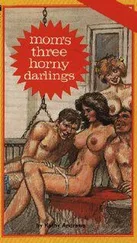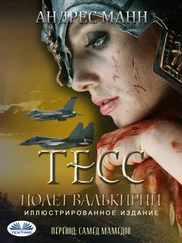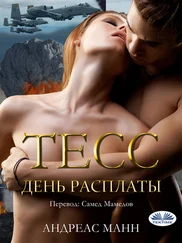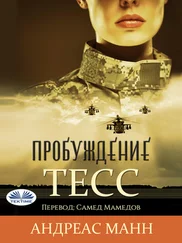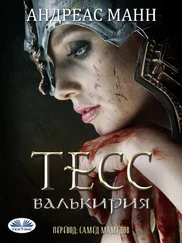Norton, Andre - Moon of Three Rings
Здесь есть возможность читать онлайн «Norton, Andre - Moon of Three Rings» весь текст электронной книги совершенно бесплатно (целиком полную версию без сокращений). В некоторых случаях можно слушать аудио, скачать через торрент в формате fb2 и присутствует краткое содержание. Жанр: Старинная литература, на английском языке. Описание произведения, (предисловие) а так же отзывы посетителей доступны на портале библиотеки ЛибКат.
- Название:Moon of Three Rings
- Автор:
- Жанр:
- Год:неизвестен
- ISBN:нет данных
- Рейтинг книги:4 / 5. Голосов: 1
-
Избранное:Добавить в избранное
- Отзывы:
-
Ваша оценка:
- 80
- 1
- 2
- 3
- 4
- 5
Moon of Three Rings: краткое содержание, описание и аннотация
Предлагаем к чтению аннотацию, описание, краткое содержание или предисловие (зависит от того, что написал сам автор книги «Moon of Three Rings»). Если вы не нашли необходимую информацию о книге — напишите в комментариях, мы постараемся отыскать её.
Moon of Three Rings — читать онлайн бесплатно полную книгу (весь текст) целиком
Ниже представлен текст книги, разбитый по страницам. Система сохранения места последней прочитанной страницы, позволяет с удобством читать онлайн бесплатно книгу «Moon of Three Rings», без необходимости каждый раз заново искать на чём Вы остановились. Поставьте закладку, и сможете в любой момент перейти на страницу, на которой закончили чтение.
Интервал:
Закладка:
The van could not move swiftly, and moreover I must keep to its slowest pace while still in sight of the fair by reason of my excuse. For to tumble ailing animals would have been suspicious to any watcher. Thus, when all inside me urged speed and yet more speed, I set the kasi to an amble as I passed beyond the last line of fringe tents. I had believed that someone might question my going, though I had taken care to give my reasons to the priest and Otjan.
Those I had chosen to accompany me on this mission, though they now rode caged, were the keenest of mind, and the most aggressive of all our company. Borba and Vors were glassia of the mountain forests. They were in length the span of four hands placed end to end, and had long slender tails as long again as their bodies .their fur as black as a night of storm and no stars. They each had long paws with very sharp claws which they carried sheathed, but were like a sword blade to be used when the occasion demanded. Their heads were crowned with a tuft of gray-white stiff hair and this they flattened to their skulls when going into battle. By nature they were curious and fearless, willing to face enemies much larger than themselves—and ofttimes they won such battles too. They were seldom seen in the lowlands and thus could pass for animals we dared not lose.
Tantacka looked more dangerous than she was, though once roused her ire was a dogged, smoldering emotion which lasted long and made her more cunning in attack than her appearance suggested. She was plump of body, with a blunt-nosed face and small rounded ears, the merest stump of tail which she usually carried plastered down to her haunches. Twice as large as the glassia, she had power in her shoulders, for her favorite food in the wild was found only under rocks of size which her kind must uproot before dining. Her yellowish fur was so coarse that it resembled quills rather than hair. She was not a beautiful animal, rather clumsy, grotesque in appearance, but that added to her appeal when she gave her part of the show, for those watching marveled that such an apparently clumsy animal could do such clever things.
Simmle was of the same general species as the barsk, though her body hair was very short and tight to the skin. At a distance she looked to be not furred at all, but with a naked hide oddly marked, for across the even cream of her lower back and haunches were stripes of dark brown. Her tail was round and very thin, like the last of a whip, her.legs seemingly skin laid over bone with little flesh between, and the like upon her head, so that one could plainly see the ridges of her skull. Like Tantacka she was no beauty, but instead of clumsiness she gave the impression of speed and wiry endurance. And that was truth, for the venzese have long been used in the high plains for the coursing of game.
As I drove I felt their eager inquiry, their wonder at the meaning of our journey. To them I relayed my sense of danger, the need for wariness, to which they responded each in his own way. And, once well beyond sight of the fair, I brought each in turn out of the cage to sit beside me for a space, to look upon the country, to use his own senses for guide. For they had eyes to see what man's eyes do not, noses to lift from the breeze messages we do not note, ears to hear what we remain ignorant of—and these were in my service.
Simmle was uneasy, not because of what she sensed as she sat quietly beside me in the sunlight of the morning, but because of the barsk. To the rest he was no kin, near or far. And since they knew he was not free to harm them, they ignored his presence. But to Simmle he was enough like her own clan that she was even aware of him, and I had to ease her fear, for madness is something so alien it breeds panic in those who come in contact with it.
On Yiktor there is madness, the brain does not think along smooth paths but slips out of pattern into chaos. And the mad man, the woman so afflicted, are deemed touched by Umphra, a primeval power. No one will harm such. When discovered they are put under restraint of the priests and taken high in the mountain to a certain Valley. And from memories of that Valley my mind ever flinches. To harm or kill the mad is to take into one's own body, believe the plainsmen, that illness which twisted awry its victim.
But animals that go mad are killed, and I think they are the more kindly used, being loosed so on the White Road where suffering and sorrow are naught, drawn so into Molaster's great pattern and keeping. I feared that I must deal so with the barsk, though still I was loath to take that final step. For as Malec had said, it had long been my wish to add this very rare and independent rover to our company. Perhaps I was vain of my own power and desired to add to the small frame I already had of one who worked well with the little people.
We forded the river, meeting with none other on the outward road from Yrjar than some belated fair-goers . And to the greetings of these I replied as one who had cares, twice saying that illness among my beasts drove me to this departure. But after midday I turned from the open road into a side trail which still led eastward, lest some passer-by would begin to wonder why I needs must go so far in my search for peace and quiet for my ill ones.
Before sunset we came to a meadow place by a stream, and there I made camp, loosing the kasi for grazing, my other ones to explore and enjoy their freedom. They relished this ability to nose about and lap from the stream, though none of them wandered far from the van, and in that the barsk remained curtained and alone.
After my companions were fed and bedded for the night and all was well, I looked upon the moon at its rising. Already the Third Ring was better defined. Another night or two and it would be bright—to be visible for sometime after. In my hands the wand caught its light and made it dazzle the eyes. I longed fiercely to try beam-reading, but since I was alone, and he who reads thus must in a manner of speaking depart from the body, lie entranced so that he may not easily awaken, I did not dare. But it was a hunger eating in me and I must rise and pace back and forth to quiet my nerves. Though I did dare again the use of the wand, it pointed firmly to the east.
At last I realized I must use the Qu'lak Song to summon slumber since the body must never be overridden by the mind, unless the need is very great. A Singer early learns that the temptation to forget the body is a strong one, and must ever be resisted. So I sang the four words and the five tones and opened my mind to rest.
There were twitterings and squeakings in the grass and I looked upon the mists of early morning. I released my little people once again while I prepared our food and put the kasi to the yoke. I fed the barsk and he lay quiet on his bedding. To the mind-touch he was weaker, growing lethargic as if the frenzy which "had eaten him the day before had bruised and injured what contained it. And I wondered if this weakness was a good thing, to afford me a way of reassuring and perhaps leading those impulses back to stability. But my probe showed me that the time, if it would ever come, was not yet.
Once more we set out, though the trail we followed grew rougher and I feared I might reach a point the van could not pass and I would have to retrace my steps and seek out a side way. There was a kind of tension in the air which we all shared. I knew it for what it was, no warning of ill but rather the foreshadowing of what the Three Rings would bring to all who opened their minds rightly to the power. For at this time there was little limit on what might be assayed by the bold—though boldness is never enough when dealing with the power.
We were going into the hills and though this was not a country I was much familiar with, I knew that in this direction lay the holdings of Oskold. But I wondered at Osokun's rashness at bringing any captive here, unless the very boldness of such a move would, in a way, cover his tracks. None would believe that he would take a secret prisoner into the heart of his father's domain. But was Oskold himself a party to this? That set another design on the loom. For Oskold was seemingly a man of some intelligence and cunning. And if he were ready to defy law and custom, it would mean he held a mighty weapon in reserve with which to confound his enemies.
Читать дальшеИнтервал:
Закладка:
Похожие книги на «Moon of Three Rings»
Представляем Вашему вниманию похожие книги на «Moon of Three Rings» списком для выбора. Мы отобрали схожую по названию и смыслу литературу в надежде предоставить читателям больше вариантов отыскать новые, интересные, ещё непрочитанные произведения.
Обсуждение, отзывы о книге «Moon of Three Rings» и просто собственные мнения читателей. Оставьте ваши комментарии, напишите, что Вы думаете о произведении, его смысле или главных героях. Укажите что конкретно понравилось, а что нет, и почему Вы так считаете.





